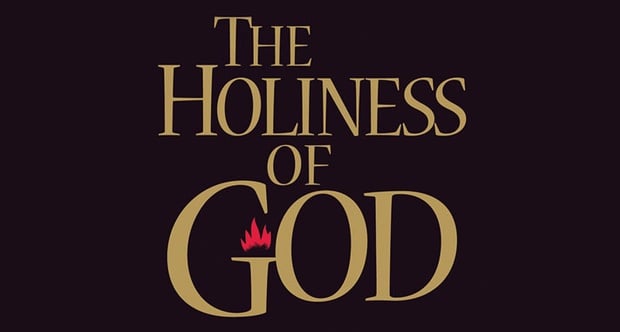“Paul was not ignorant of Satan’s devices, but we are not so wise. Among his most successful devices today are these: exalting tolerance above truth; emphasizing the head more than the heart; making size more important than sort; stressing the positive to the neglect of the negative; putting happiness above holiness; majoring on this world instead of the next.”
~Vance Havner
The Promise God Made To Himself
by Pastor Cornelius R. Stam
“In hope of eternal life, which God, who cannot lie, promised before the world [or, “ages”] began” (Titus 1:2).
“The Cretians are always liars” (Ver. 12). “God… cannot lie” (Ver. 2). What a contrast! And how reassuring to know that our salvation depends upon the Word of God, who cannot lie!
Our opening passage, above, however, states that God made this promise “before the world [or, “ages”] began. How can this be? There is no indication that He made this promise to the angels, and there was no one else to whom He could have made it — except Himself, and this is exactly the truth of the matter. Have we not all made earnest promises to ourselves?
Before God ever made one promise to any man, He promised Himself that He would provide salvation and all the riches of His grace for sinners through Calvary’s finished work, and the promises later made to men were but progressive revelations of a firm purpose He had already made in His own heart of love. Paul, the apostle of “the mystery,” refers to this blessed fact again and again in his epistles:
“But we speak the wisdom of God in a mystery… the hidden… WHICH GOD HATH ORDAINED BEFORE THE WORLD UNTO OUR GLORY” (I Corinthians 2:7).
“According as HE HATH CHOSEN US IN HIM [CHRIST] BEFORE THE FOUNDATION OF THE WORLD…” (Ephesians 1:4).
“In whom also we have obtained an inheritance, BEING PREDESTINATED ACCORDING TO THE PURPOSE OF HIM WHO WORKETH ALL THINGS AFTER THE COUNSEL OF HIS OWN WILL” (Ephesians 1:11).
“Who hath saved us, and called us with an holy calling, not according to our works, but according to HIS OWN PURPOSE AND [HIS OWN] GRACE, WHICH WAS GIVEN US IN CHRIST JESUS BEFORE THE WORLD BEGAN” (II Timothy 1:9).
The Purpose of Creation
By Rabbi Yechiel Eckstein
When you have entered the land the LORD your God is giving you as an inheritance and have taken possession of it and settled in it, take some of the firstfruits of all that you produce from the soil of the land the LORD your God is giving you and put them in a basket. Then go to the place the LORD your God will choose as a dwelling for his Name. — Deuteronomy 26:1–2
The Torah portion for this week is Ki Tavo, which means “when you have entered,” from Deuteronomy 26:1–29:8, and the Haftorah is from Isaiah 60:1–22.
“G times five,” my teacher would say. “That’s the reason why the world was created.” Then he would explain the “five G’s” as follows: “The Greatest Good that God can Give is God Himself.” In other words, God created the world as an act of kindness. He wanted to give something wonderful to us, and the greatest pleasure that any human being can experience is the pleasure of having a relationship with God.
However, the Sages’ commentary on the opening verses of this week’s reading suggests another purpose for creation. The reading begins with the commandment to bring the firstfruits of the harvest to God as an offering. During Temple times, farmers would mark the fruits that emerged first with a red string. Then, once ripened, they would bring the fruit to Jerusalem with great pomp and grandeur as an offering to God. For this grand event, say the Sages, the world was created.
How are we to understand this statement given the other reasons suggested for the creation of the world? How are we to appreciate this commandment and its importance now that we can no longer fulfill it today?
God doesn’t eat fruit and He certainly doesn’t need any of ours. The bringing of the firstfruits was a spiritual practice that was deeply symbolic. It characterized a person’s entire relationship with his or her Maker.
A farmer would plow a field and plant some seeds. Over time, he would cultivate the plants and care for the field. Finally, after much labor and patience, produce would emerge. After working so hard on his field, the farmer would be elated by the first signs of success. He did it! All that hard work paid off. He created fruit from the earth.
However, the danger in the celebrating one’s achievement in producing the firstfruits is forgetting that there is only one true Creator. As Scripture warned, we might say: “My power and the strength of my hands have produced this wealth for me” (Deuteronomy 8:17). Yet, while we certainly play a role, it is God alone who creates and provides everything. God gave us the commandment of the firstfruits so that we will recognize Him and have a relationship with Him – the very purpose of creation. The true test of our relationship is not when we are in need; rather, it is when we are most successful. It is in our greatest moments that we must recognize our dependence on God.
Today, we can practice this profound directive by recognizing God in all we do. We can dedicate a percentage of our earnings to charity and use our talents for God’s purposes – not because He needs our help, but because we need Him in our lives.
With prayers for shalom, peace,
GOD’S COMPENSATIONS
By Vance Havner
The Lord is able to give thee much more than this.
II Chronicles 25:9
Amaziah had hired an army of Israel to fight Edom, when he should have relied upon God. When a prophet advised against it Amaziah was concerned about the money he had paid out for such assistance. The prophet answered with our text. In other words, God is able to make up any loss we sustain when we give up anything for Him.
We are prone to seek help from the world when confronted with a crisis. To give it up leaves us with a helpless feeling. What about the sacrifices we make and the money we lose? But we only give up trash for treasures and rags for riches. God can and will abundantly compensate us for any loss we sustain. After all, we never lose anything by utter reliance on God. We but get rid of hindrances. It is never a losing proposition to trust God. When to us to live is Christ, then to die is gain, and even death pays dividends.
The Lord is able to give us much more than we lose when we part with all else to trust Him.
Four Kinds Of Men
by Pastor Cornelius R. Stam
According to the Apostle Paul’s inspired epistles, the human race is divided into four categories:
- The natural man, i.e., the fallen son of Adam, as he is, without God. Of him the Apostle says: “The natural man receiveth not the things of the Spirit of God: for they are foolishness unto him: neither can he know them, because they are spiritually discerned” (I Corinthians 2:14).
- The babe in Christ. When a person sees himself as a sinner and trusts Christ as his Saviour, he is “born again” and becomes a “babe in Christ”. But babes can and should grow, so these are exhorted: “As newborn babes, desire the sincere [pure] milk of the Word, that ye may grow thereby” (I Peter 2:2).
- The carnal Christian is one who, though perhaps a Christian for years, has not grown, due to indifference and neglect of the Word of God. He still has to be treated as a babe in Christ. The Corinthian believers were examples of this. Paul had to write them: “I…could not speak unto you as unto spiritual, but as unto carnal, even as unto babes in Christ. I have fed you with milk, and not with meat: for hitherto ye were not able to bear [digest] it, neither yet now are ye able” (I Corinthians 3:1,2). Everybody loves a baby, but the joy that fills the hearts of loving parents turns to bitterest sorrow if their baby fails to grow.
- The spiritual Christian is one who, through prayerful study of the Word of God, has grown to spiritual maturity. He is no longer merely a child of God; he is a “man of God”. We should all “desire the sincere [pure] milk of the Word that ye may grow thereby” (I Peter 2:2) — “THAT WE HENCEFORTH BE NO MORE CHILDREN, TOSSED TO AND FRO, AND CARRIED ABOUT WITH EVERY WIND OF DOCTRINE” (Ephesians 4:14). Let us then heed St. Peter’s inspired exhortation: “BUT GROW IN GRACE, AND IN THE KNOWLEDGE OF OUR LORD AND SAVIOUR, JESUS CHRIST” (II Peter 3:18).
So Very Fortunate
By Rabbi Yechiel Eckstein
“He brought us to this place and gave us this land, a land flowing with milk and honey; and now I bring the firstfruits of the soil that you, LORD, have given me.” Place the basket before the LORD your God and bow down before him. — Deuteronomy 26:9–10
The Torah portion for this week is Ki Tavo, which means “when you have entered,” from Deuteronomy 26:1–29:8, and the Haftorah is from Isaiah 60:1–22.
As part of the ceremony of bringing the firstfruits to God that is mentioned in this week’s reading, the Israelites would recount how they cried out to God when they were enslaved in Egypt and He saved them. The declaration ended by affirming that God brought the Israelites to the land of Israel, a good land flowing with milk and honey, and that the fruits being brought were a product of the land. These verses are a statement of gratitude — gratitude for salvation, for God’s kindness, and for all life’s many blessings.
The concept of gratitude is central to Judaism. It is so elemental that the very word “Judah” from where the term “Jew” is derived, is a form of the Hebrew word that means “thank you.” We have to be grateful at all times for all things. In fact, a Jew is required to say no less than 100 blessings of thanks every day!
All this is basic to Jewish worship of God. However, recent events in Israel raised the concept of gratitude to a whole new level. On June 12, 2014, three Israeli boys on their way home from school were kidnapped and subsequently murdered by Hamas terrorists. For 18 days, while it was uncertain whether the boys were dead or alive, people from all around the world came together in love and solidarity. At the funeral of her son, Rachel Frankel expressed her gratitude while eulogizing her 16-year-old boy. She thanked the police, the army, and government for finding the bodies of the boys, something she did not take for granted.
Then she actually said these words: “From the very first day [of this ordeal], we said to ourselves that even if this ends badly we are still the recipients of God’s benevolent blessings; we are still so very fortunate.” Rachel went on to speak of her wonderful family, friends, and nation. In the midst of the deepest pain anyone can imagine, gratitude was still on her lips.
Friends, if Rachel Frankel can recognize her blessings in the midst of such tragedy, how much more should we recognize our many blessings. As the practice of bringing the firstfruits teaches us, we must never take any of our blessings for granted. We must be thankful for them and acknowledge them as gifts from God.
Today, offer your heartfelt thanks to God. Think particularly about the things that we take for granted most of the time: the people around us, the time we have with our loved ones, and that we live in a country where we are free. As King David wrote thousands of years ago, “Give thanks to the LORD, for he is good” (Psalm 136:1). Amen!
With prayers for shalom, peace,
“To the women who wept as He went to the cross, our Lord said, “. .weep not for me, but weep for yourselves, and for your children” (Luke 23:28). Some dear souls get sentimental just before Easter and feel sorry for the suffering Saviour, thinking they are very religious. Then they go to church on Easter and that does it for a whole year. Our Lord wants no cheap sympathy. He was not the helpless victim of a mob nor did He climb Calvary because He couldn’t help Himself. He could have called down twelve legions of angels. He went up voluntarily to lay down His life and take it up again. There was nothing weak and pitiful about that. We had better save our tears for ourselves and our children. Modern mothers had better weep for wayward children, broken homes, approaching judgment.”
~Vance Havner
Secret Heroes
By Rabbi Yechiel Eckstein
When you have crossed the Jordan, these tribes shall stand on Mount Gerizim to bless the people: Simeon, Levi, Judah, Issachar, Joseph and Benjamin. And these tribes shall stand on Mount Ebal to pronounce curses: Reuben, Gad, Asher, Zebulun, Dan and Naphtali. The Levites shall recite to all the people of Israel in a loud voice: — Deuteronomy 27:12–14
The Torah portion for this week is Ki Tavo, which means “when you have entered,” from Deuteronomy 26:1–29:8, and the Haftorah is from Isaiah 60:1–22.
In this week’s Torah reading, we are told that when the children of Israel entered the Promised Land, one of the first things they were commanded to do was to proclaim blessings and curses from two twin mountains. Half the tribes would stand on Mount Gerizim while the other half would stand on Mount Ebal. The Levites would stand in the middle and proclaim a series of actions that would bring about curses.
Among those actions were belittling one’s parents, having a hidden idol, taking a bribe, or misleading the blind. Interestingly, there is no counterpart recorded in the Bible for what would result in blessings. The Sages teach that the blessings come to those who do not do the things that bring about curses.
How are we to make sense today of the blessings and curses? The curses seem like a random list of things not to do, and we are left without a clear understanding of what we should do in order to deserve God’s blessings.
The Sages seek a common denominator in the actions that are listed, and here is what they found: all the actions listed in the category of curses are things that a person can do in private. They are all things that a person can “get away with” without anyone knowing. Anyone but God, that is. Therefore, anyone who acts in a godly and good way when no one is looking is a person deserving God’s blessings. The hypocrite, on the other hand – a person who acts one way in public but another in private – brings the opposite into his or her life.
For all the trash on TV these days, there is one show that I happened upon by accident that left me feeling uplifted, inspired, and with a renewed perspective. The show, Secret Millionaire, takes millionaires away from their lavish lifestyles and puts them in low-income areas for a week. The millionaire must find and reward the hidden heroes of these communities while concealing their identities until the very end. In the one (and only) episode I caught, self-made millionaire Dani Johnson discovered 81-year-old twins who maintain a soup kitchen, a successful musician who has dedicated his life to helping underprivileged aspiring musicians, and a woman who fixes up the bedrooms of terminally ill children. These people who tirelessly perform acts of kindness under the radar are blessings to others, and therefore, they themselves are blessed.
As Dani Johnson concluded, we admire all the wrong people. It’s not the sports stars, the movie stars, or even millionaires that we should aspire to be like. It’s the people quietly doing good things who are the real heroes of the world – and we should aspire to be one of them, too.
With prayers for shalom, peace,
From Curses to Blessings
By Rabbi Yechiel Eckstein
However, if you do not obey the LORD your God and do not carefully follow all his commands and decrees I am giving you today, all these curses will come on you and overtake you. — Deuteronomy 28:15
The Torah portion for this week is Ki Tavo, which means “when you have entered,” from Deuteronomy 26:1–29:8, and the Haftorah is from Isaiah 60:1–22.
Once again, in this week’s reading we are given the choice between a life of blessings or one of curses. Blessings if we walk obediently with God, and curses if we disregard Him. However, for all the wonderful blessings that we are promised as a reward for following God, there are many more curses presented. In fact there are 98 curses mentioned in this portion alone. That’s a lot of curses! Why is this section so heavy with all the bad things that might happen to us?
The Sages take note that there are exactly 98 curses, not more and not less, and they make two observations based on that number. The first is that the Hebrew letters that represent the number 98 also spell the word tzach which means “to cleanse.” The second observation is that 98 is also the numerical value of the Hebrew word selach, which means “forgiveness.”
Based on these ideas, the Sages explain that God did not create all these curses in order to inflict pain on us. Rather, in His infinite mercy and love, God desired to give us a chance to cleanse ourselves of our misdeeds and to ultimately achieve forgiveness for our wrongdoings. The point of these curses – which are any difficulties that we experience in life – is to make us better, not bitter. They are meant to raise us up, not keep us down. Above all, the challenges in our lives are intended to lead us toward a path of repentance, which is also the path toward blessings.
This is why the Sages make a hard-to-understand comment on this section of the Bible. They teach that in-between the lines of these curses we can find the source of all blessings and comfort. From the curses, we can ultimately receive tremendous blessings.
In the Jewish tradition, we are taught to make a blessing on the bad and the good that occurs in our lives. This is because, ultimately, everything – even those things that seem bad – are only for the good. When seemingly bad things happen to us, we have the opportunity to transform the experience into an overflowing fountain of blessings in our lives. We are able to cleanse ourselves, attain forgiveness, and become deserving of all that God has to give to us.
Next time an unpleasant event or circumstance presents itself in our lives, we must resist the urge to ask, “Why is my life so bitter?” and instead ask, “How can I make myself better?” In this way we can transform any obstacle into a receptacle and receive God’s incredible blessings into our lives.
With prayers for shalom, peace,
Rabbi Yechiel Eckstein
And this is worth reading again, and really contemplating upon, taking to heart, and acting upon:
“Paul was not ignorant of Satan’s devices, but we are not so wise. Among his most successful devices today are these: exalting tolerance above truth; emphasizing the head more than the heart; making size more important than sort; stressing the positive to the neglect of the negative; putting happiness above holiness; majoring on this world instead of the next.”
~Vance Havner



















Leave a Reply, please --- thank you.